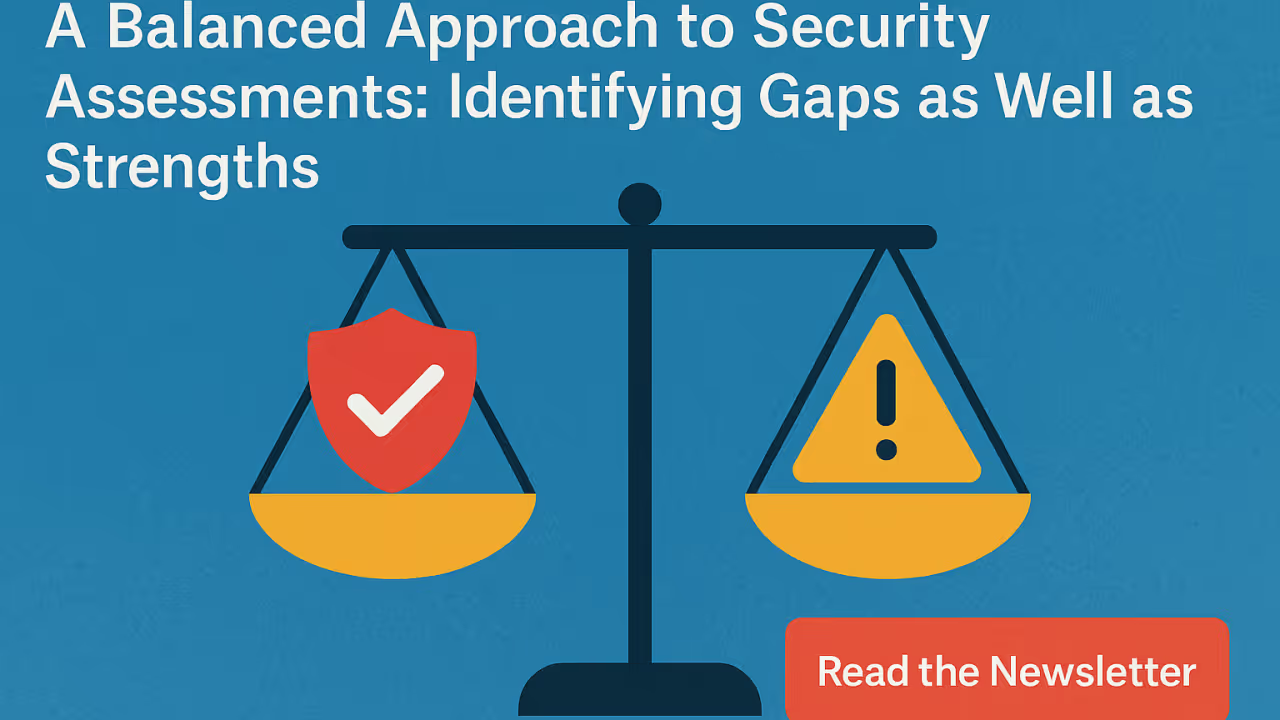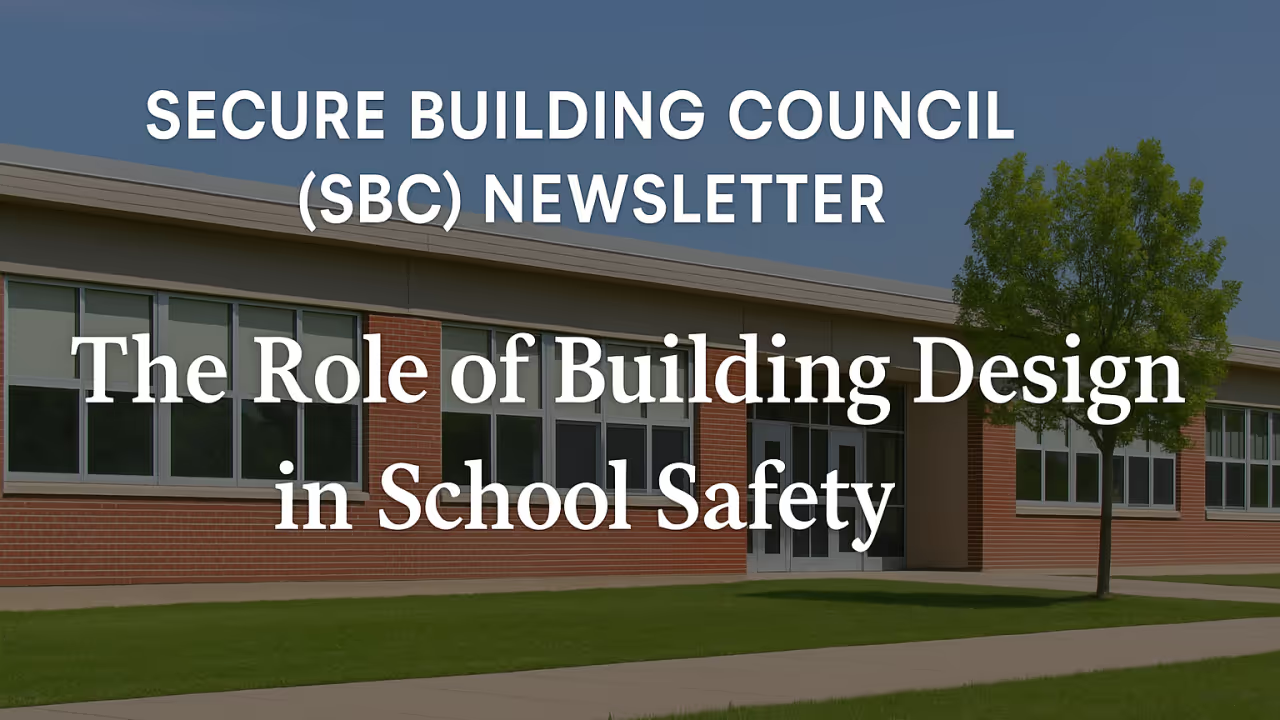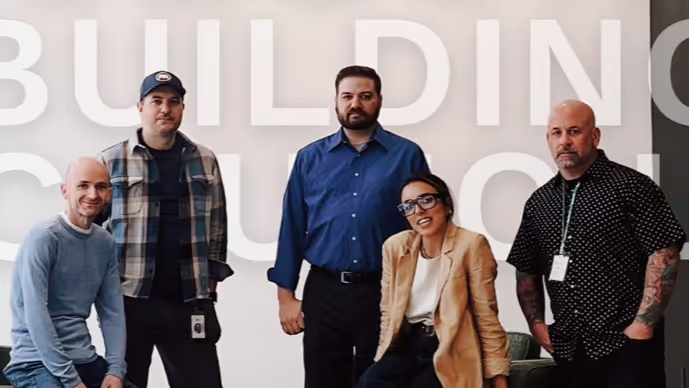A Balanced Approach to Security Assessments: Identifying Gaps as Well as Strengths

When conducting security assessments, the natural inclination can be to hyper focus solely on identifying vulnerabilities and weaknesses. After all, addressing security gaps is a core part of the job. However, an often overlooked, but equally critical, aspect of a good assessment effort is recognizing and reinforcing the things that organizations are already doing well.
Security is not just about identifying and addressing risk and vulnerabilities, but also about building resilience. Organizations need to know what security measures are effective so they can continue investing in them, reinforcing a culture of security that extends beyond checklists and compliance requirements.
Creating and sustaining a security-conscious culture is no small feat. It requires continuous effort, on-going investment, and adaptation to evolving threats. Periodic assessments conducted by security professionals play a crucial role in not only helping organizations close gaps, but also ensuring they maintain confidence in their existing security strategies. Here’s why this balanced approach matters and how it benefits organizations in the long run:
1. Change is Difficult to Implement
Security improvements often require shifts in behavior, new procedures, and adoption of new technology, which can be met with resistance. Organizations may already be implementing best practices but struggle with sustaining them due to competing priorities, budget constraints, or workforce challenges.
When a security assessment highlights what an organization is doing right, it provides validation, encouragement, and justification for the investment. Positive reinforcement helps teams stay committed to security measures that may not show immediate benefits but are crucial for long-term protection. Change does not happen overnight and recognizing progress helps maintain momentum.
2. Security Requires Long-Term and Consistent Action
Security is not a one-time initiative—it’s an ongoing process. Proper security measures need to be supported even in the absence of immediate or obvious returns because change takes time. However, without regular reinforcement, organizations may lose focus, leading to complacency.
For example, if an organization has successfully implemented multi-factor authentication (MFA) and employee security awareness training, these efforts should be recognized and reinforced. Otherwise, leadership may question whether continued investment is necessary, leading to budget cuts or reduced adherence to policies. A security assessment can help organizations understand the importance of maintaining these measures.
3. Security Success Can Be Difficult to Measure
Unlike other business functions, security’s effectiveness can be tricky to measure. The absence of security incidents doesn't necessarily mean that your facility is secure. Organizations may struggle to assess whether their security strategies are truly effective or if they have simply been lucky. This is where a proper assessment and consultation plays a crucial role — helping organizations define meaningful security metrics and conducting validation tests to determine which measures are genuinely working. Reinforcing existing strengths allows organizations to make informed decisions about where to focus their efforts and investments.
The Role of Security Consultants: Beyond Finding Gaps
Security consultants must balance their approach between identifying risks and reinforcing strengths. A comprehensive security assessment should include:
- A clear analysis of vulnerabilities that need to be addressed.
- Recognition of successful security practices that should be continued and expanded.
- Guidance on how to measure security effectiveness to ensure long-term success.
- Recommendations on how to maintain momentum in fostering a security-conscious culture.
By taking this holistic approach to security assessments, security consultants help organizations not only fix weaknesses but also build a sustainable security framework that evolves with their needs. This ensures that security is not just a reactive measure but an integral part of an organization’s long-term strategy.
In the end, security is about more than just plugging holes—it’s about building a resilient, forward-thinking culture that can withstand evolving threats. By recognizing and reinforcing security strengths, we empower organizations to stay proactive, confident, and prepared for whatever challenges lie ahead.
About the Author: Michael Niola, PSP, CPTED
Mike is Principal and Co-founder of Consulting Group LLC, a security consulting and engineering firm focused on delivering holistic solutions for the built environment. Everywhere from Data Centers to Healthcare campuses, he looks to provide value directly within the fast-moving markets experiencing technological revolutions that affect how buildings are planned, designed, built, and operated.



.avif)
